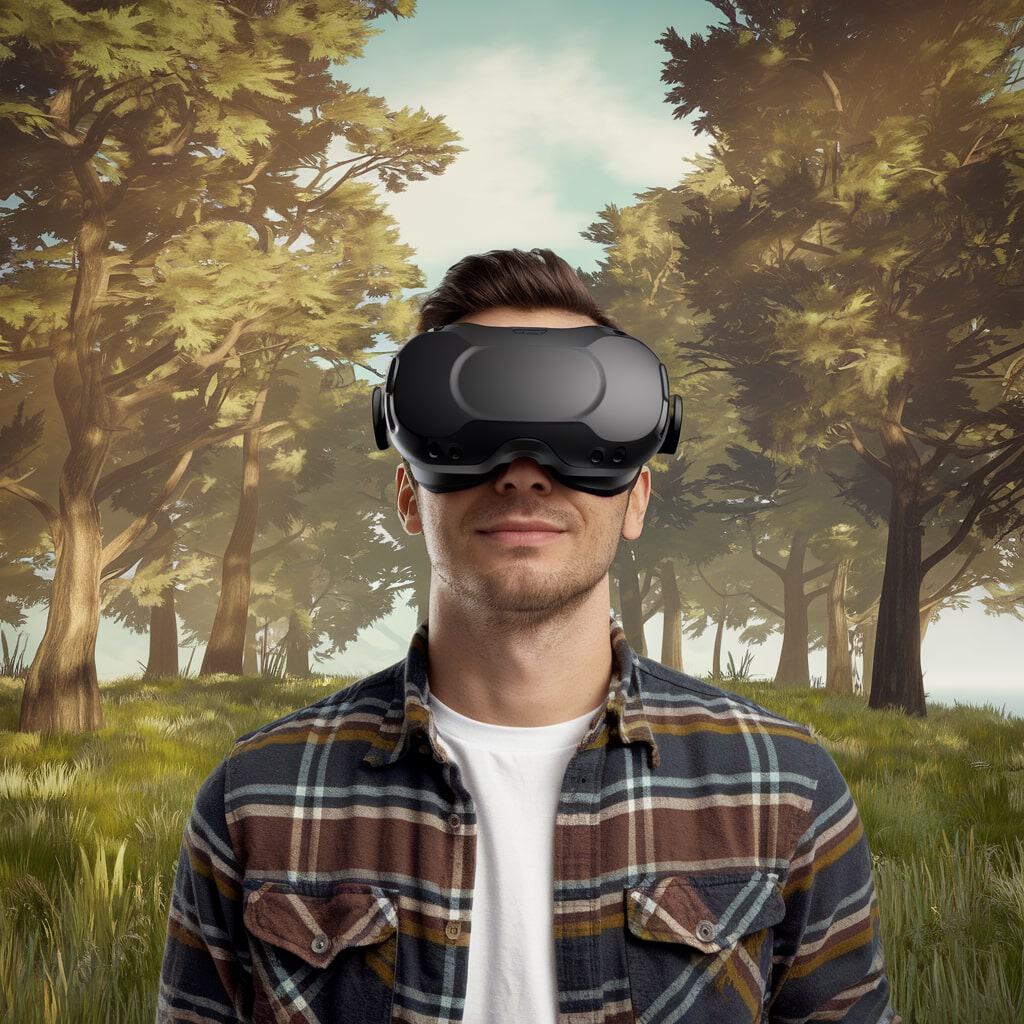Virtual Reality (VR) is no longer a futuristic concept—it has become a powerful tool that immerses users in digital environments, creating experiences that feel remarkably real. But how does VR impact the brain, and what are the psychological effects of prolonged use? From cognitive benefits to potential risks, let’s explore how virtual reality interacts with the human mind.

1. The Brain’s Response to Immersion
VR creates a sense of presence, tricking the brain into believing that the digital environment is real. This happens because VR stimulates multiple senses, engaging the visual, auditory, and even tactile systems. The brain processes these inputs as though they were part of reality, leading to:
- Stronger Emotional Reactions: Virtual experiences can evoke deep emotions, making learning and training more impactful.
- Enhanced Memory Retention: Studies suggest that VR-based experiences can improve memory recall due to their immersive nature.
- Improved Spatial Awareness: The ability to navigate 3D environments in VR strengthens spatial cognition skills.
2. The Therapeutic Potential of VR
VR is increasingly being used in psychological therapy and rehabilitation. Some of its key benefits include:
- Exposure Therapy: Patients with PTSD or phobias can confront fears in a controlled, safe virtual setting.
- Cognitive Rehabilitation: VR helps stroke survivors regain motor functions through interactive simulations.
- Pain Management: VR distracts patients from pain by immersing them in relaxing or engaging environments.
3. VR and Neuroplasticity
The brain adapts to experiences through neuroplasticity—the ability to reorganize neural pathways. VR has been shown to accelerate this process by:
- Encouraging motor learning through interactive exercises.
- Enhancing problem-solving skills by immersing users in complex scenarios.
- Supporting language acquisition by placing learners in realistic conversations with AI-driven NPCs.
4. Potential Psychological Risks
While VR offers many benefits, overuse can lead to psychological concerns such as:
- Motion Sickness: The disconnect between visual input and physical movement can cause nausea and dizziness.
- Reality Confusion: Prolonged exposure may blur the line between virtual and real-life experiences, especially in younger users.
- Addiction Risk: Highly engaging virtual worlds can lead to excessive usage, impacting real-world responsibilities and social interactions.
5. The Future of VR and Cognitive Research
As VR technology advances, researchers continue to study its long-term effects on the brain. Potential future applications include:
- AI-powered VR Therapy: Adaptive mental health treatment tailored to individual needs.
- Brain-Computer Interfaces (BCI): Direct neural interaction with VR for enhanced learning and control.
- Personalized Cognitive Training: VR-based exercises designed to optimize memory, focus, and creativity.
Conclusion
VR is a revolutionary tool that influences the brain in profound ways. While it offers significant cognitive, emotional, and therapeutic benefits, users must be mindful of potential risks. As VR technology continues to evolve, so too will our understanding of how it shapes human psychology. The future of VR holds incredible potential—not just for gaming, but for learning, therapy, and cognitive development.
